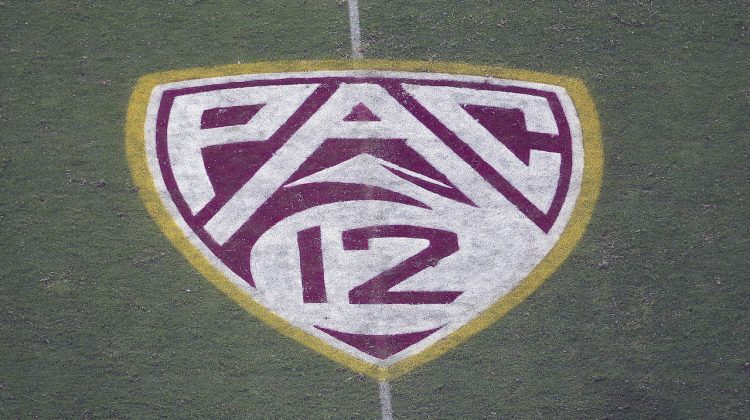One week from today, the conference commissioners and university presidents in charge of the College Football Playoff will decide whether to expand the event to 12 teams in time for the 2023 season or the 2026 season — or whether to pause the process altogether.
The Pac-12, which will be represented by commissioner George Kliavkoff and Washington State president Kirk Schulz, is expected to support a pause.
It’s the right move for the conference — the only move for the conference.
There are too many unknowns about the consequences of the 12-team model and too few knowns about alternate formats, including an eight-team model.
Should the Power Five champions have automatic bids?
Should the top-four teams be awarded home games in the quarterfinals?
What role will the Rose Bowl play in the event?
What about brutal winter weather on northern campuses?
And which media company — or companies — will pay for the expanded event?
A CFP subcommittee evaluated dozens of expansion models before settling on the 12-team format put forth in June. But former Pac-12 commissioner Larry Scott wasn’t involved, and the conference’s athletic directors were in the dark until recently.
Utah’s Mark Harlan put it well recently: “The subcommittee came up with a lot of great concepts, but when you find out the same day it goes public, you need to allow us time.”
The 12-team format was made public on June 10. Consider what has unfolded since then:
July 1: Kliavkoff becomes Pac-12 commissioner
July 1: Implementation of Name, Image and Likeness rules
July 29: Texas and Oklahoma join the SEC
Aug. 24: Pac-12, Big Ten and ACC form the alliance
Various dates: Campuses open for the fall term
It has been arguably the busiest stretch in the history of college athletics, especially for a conference undergoing a leadership change smack in the middle of it.
And within all that craziness, the CFP expansion proposal, which took two years to create, is supposed to be vetted in a matter of months.
More than any other power conference, the Pac-12 needs the playoff to expand. Kliavkoff has stated repeatedly that he favors expansion.
But the specifics are tricky, the unknowns considerable and the repercussions far too significant for the conference to approve the 12-team model at the Sept. 28 gathering in Chicago. (An advance meeting, tomorrow in Dallas, will feature the conference commissioners.)
We cannot stress this point enough for fans focused exclusively on CFP expansion: Everything is connected.
The future format of the playoff will impact Pac-12 decisions on non-conference scheduling, on the number of conference games, on the future of the division format, on media rights negotiations and, potentially, on membership expansion down the line.
So significant are the issues that Kliavkoff formed a football advisory committee. It meets regularly and includes all the athletic directors and head coaches.
“You’re talking about the foundation of this conference for playing Division I football going forward,” said Pac-12 football operations chief Merton Hanks, who oversees the committee.
But the approach to conference-specific issues — for example, nine conference games or eight? — is linked inexorably to CFP expansion, largely through the access policy.
If the Pac-12 champion were guaranteed a playoff berth, the conference would have scheduling options that don’t exist in a world where its champion could get left out.
Those options could improve its leverage when media rights negotiations begin late next year.
Imagine no divisions, no FCS opponents, and no hesitation to load non-conference schedules with Power Five opponents.
Imagine Oregon playing Ohio State and Miami and Tennessee and Oklahoma State.
Imagine USC playing Notre Dame and Michigan State and Clemson and Texas.
The loss count wouldn’t matter, so long as you win the conference title.
Talk about boosting media rights value.
“You can’t overstate the importance of the CFP designation (on automatic bids),” Hanks said. “Until that piece is more definitive, this is just a great exercise, but it’s difficult to forecast everything else. It’s the cornerstone issue.”
Against that backdrop, three months isn’t enough time.
Support the Hotline: Receive three months of unlimited access for just 99 cents. Yep, that’s 99 cents for 90 days, with the option to cancel anytime. Details are here, and thanks for your support.
*** Send suggestions, comments and tips (confidentiality guaranteed) to pac12hotline@bayareanewsgroup.com or call 408-920-5716
*** Follow me on Twitter: @WilnerHotline
*** Pac-12 Hotline is not endorsed or sponsored by the Pac-12 Conference, and the views expressed herein do not necessarily reflect the views of the Conference.
Related posts:

(AP Photo/Marcio Jose Sanchez)
Commissioner George Kliavkoff on the state of Pac-12 football (‘We’re in the valley’)
(AP Photo/Ralph Freso, File)
Pac-12 recruiting update: Oregon lands four-star WR, Washington hopes to keep Tacoma QB at home and UCLA changes its strategy
(AP Photo/Ralph Freso, File)
Hotline mailbag: Kliavkoff’s culpability, Pac-12 expansion options, the future for Cal and Stanford, valuing the Arizona schools and loads more
(AP Photo/Ralph Freso, File)
Pac-12 football preview: The top 10 trap games for 2022
